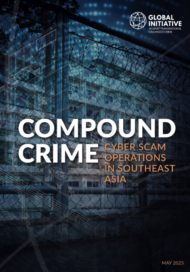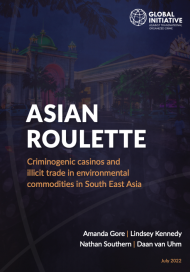Posted on 29 May 2025
Cyber scam operations have surged across Southeast Asia since the onset of the COVID-19 pandemic, evolving into a transnational organized crime crisis of staggering proportions. In this report, we expose the inner workings of scam compounds and the sophisticated criminal ecosystem sustaining them.
Repurposed hotels, casinos, and private compounds across Cambodia, Laos, Myanmar and the Philippines have become centres of global fraud. These compounds are operated by organized criminal networks that exploit hundreds of thousands of people, many of whom are trafficked and forced to perpetrate online scams. Victims include not only those defrauded online but also the scam workers themselves, subjected to threats, violence, sexual exploitation and extreme working conditions.
The report details how cyber scams —including ‘pig-butchering’ romance-investment scams, crypto fraud, impersonation and sextortion— now generate tens of billions of dollars annually.
These illicit operations thrive due to weak rule of law, widespread corruption, and complicity from powerful figures who operate as ‘role shifters’ —individuals who blur the lines between government, business and crime. Scam compounds often enjoy protection from local elites and security forces, and rely on global money laundering networks, including cryptocurrencies and high-risk financial services providers.
This in-depth analysis, based on extensive fieldwork and case studies, highlights the devastating economic, human rights and security implications of cyber scam operations.
The report calls for urgent, coordinated responses, including better victim identification systems, crackdowns on enablers, and reforms to protect vulnerable communities.




